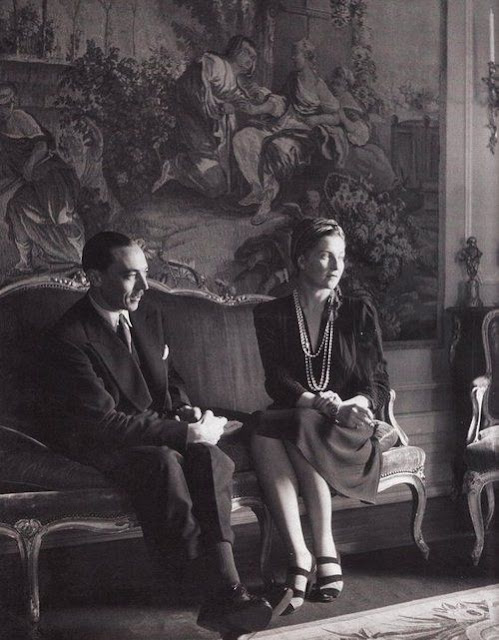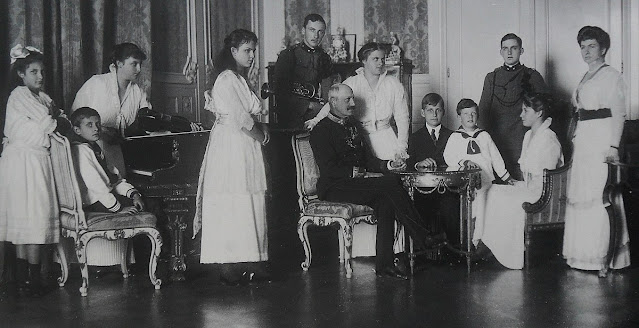If You Like Isabella, Then You'll Love...
 |
| Isabella d'Este by Titian |
I'm back with one of my favorite series, where I try and come up with more unusual alternatives for lovely (but popular) names! Today we'll be doing the perennial Isabella.
Isabella, for me, has a lot of the same qualities as Sophia -- it's romantic, feminine, and elegant, with a long history of use and a wealth of namesakes, from the many Royal Isabellas to sultry film stars. It is quintessentially female, strong and regal.
Florence - While Florence has long been a favorite among name lovers for its soft elegance, I can really see it taking off even further due to actress Florence Pugh. Florence comes from the Latin Florentia, which itself comes from florens, meaning "prosperous or flourishing". The male form, Florentius, was used by many early Saints, like Florentius of of Peterborough and Florentius of Strasbourg. Of course, Florence is also a city in Italy, adding a hint of romanticism to the name. Currently, Florence ranks #762 in the US, but is flourishing in the UK, where it sits comfortably at #14.
Raphaela - To me, this name is the epitome of feminine, frilly but with a strength collected over time and much use. It is simply the female form of angelic Raphael, which was originally Rafa'el in Hebrew, and means "God heals". In the bible, the archangel disguises himself as a man called Azarias, and accompanies Tobias on his journey to Media. In the end, Raphael heals Tobias' father of his blindness. Raphaela is also the name of a Saint, and Princes Georgina of Liechtenstein was called Raphaela. I love its pan-European appeal and think each version is stunning, from the Italian Raffaela to the Spanish Rafaela to the French Raphaëlle. Currently, in the form Raphaela it doesn't even rank in the US, while Rafaela last ranked in 1909, marking it as an undiscovered gem.
Uliana - My first thought when it comes to this name is Russian prima ballerina Ulyana Lopatkina, who was promoted to principal dancer at the Mariinsky Theatre in 1995. Both spellings are used in Russia and the Ukraine (along with Yuliana and Yulianna) and come from the Ancient Roman name Iulianus, an offshoot of the regal Julius. Julius is theorized to come from the Greek ioulus, meaning "downy-bearded". Another theory posits an origin relating to the Roman God of thunder and sky, Jupiter. Uliana is one of those choices that I think will forever be unusual, so if you're looking for something that will stand the test of time and still be nearly unheard of in the next twenty or so years, this is the name for you!
Susanna/h - Lovely Susannah has long been a favorite of mine. I have a soft spot for old-fashioned names that lend easily to more modern and feisty nicknames, my three choices being Suzu or Suki or Zanna in this case. Susannah, or Susanna, comes from the Greek form of the Hebrew Shoshannah (also gorgeous!). Shoshannah is derived from the Hebrew word shoshan, meaning "lily". In the Old Testament, Susanna is a woman falsely accused of adultery, but is vindicated by the prophet Daniel, and in the end her accusers are condemned in her stead. It is also featured in the New Testament, on a woman who ministers to Jesus. Susanna hasn't ranked in US since 1997, while Susannah hasn't featured since 1978, making either spelling ripe for revival, and much fresher than Susan.
Lorena - Musical Lorena is both a Spanish, Italian, Romanian and Portuguese form of the French place name Lorraine, and a name invented by American Reverend Henry D.L. Webster for a song. "Lorena", traces its roots all the way back to the Civil War, and is based on the lyricist's love for a girl from Zanesville, Ohio. While the girl in the song was named Ella in real life, Webster changed her name to Lorena, possibly as an anagram of Lenore, the lost love of Poe's anonymous protagonist in The Raven. One Southerner attributed their loss to the song, saying that any soldier who heard it grew so homesick they lost their will to fight. While it has seen popularity in Europe, Lorena has been off the US chart since 2010. I feel that, ultimately, Lorena Bobbitt is keeping parents from choosing this historic and beautiful name, though I don't think she's as well known any longer, especially by younger generations.



Comments
Post a Comment